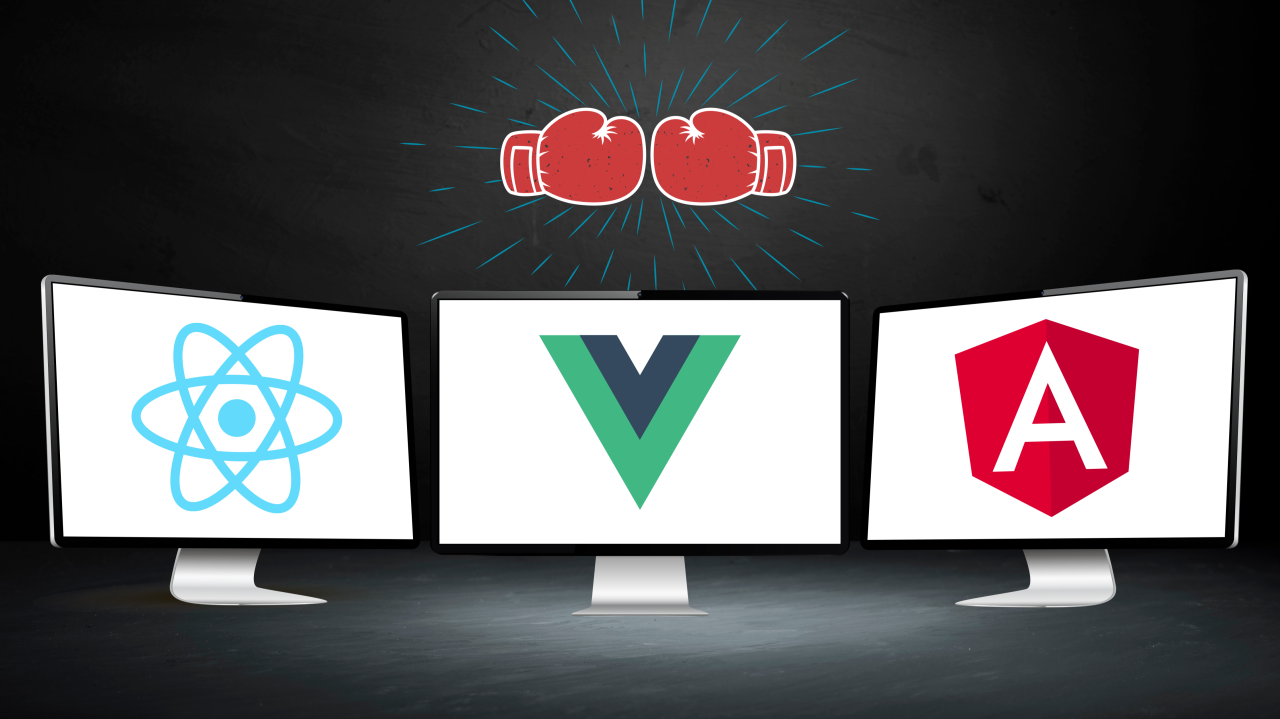
React vs. Vue vs. Angular: Choosing the Right JavaScript Framework for Your Legacy Modernization Project
If your legacy system requires modernization, there's a good chance it could use some user interface improvements. If you want to build a new front-end to your application that's efficient, scalable, and maintainable, making the right framework choice is critical.
In an article we wrote back in May, we compared the two most prominent JavaScript frontend frameworks, React and Angular, to keep things simple and provide an assist for those of us looking for the best tool for our front-end project.
There are other frameworks to consider, so we thought we would provide an update and expand our choices to include Vue, an increasingly popular front-end framework.
Ultimately, the best choice depends on your team’s expertise, project requirements, and future scalability plans.
Since its initial release in 2014, Vue has quickly gained traction among developers for its simplicity and ease of use. It was created by Evan You while working at Google and was inspired by both Angular and React. Vue's core library is focused on the view layer only, making it lightweight and highly customizable for different projects.
Vue has a relatively shallow learning curve. Compared to React and Angular, developers can grasp the fundamentals of Vue much quicker, making it an attractive option for those new to front-end development or looking to switch frameworks.
Another standout feature of Vue is its progressive framework approach. This means that developers can gradually adopt additional features as needed rather than being overwhelmed with a large set of tools from the beginning.
Here, we compare three popular JavaScript frameworks—React, Vue, and Angular—based on key factors to help you make an informed decision.
Learning Curve
React
Vue
Angular
Performance
React
Vue
Angular
Community Support
React
Vue
Angular
Scalability
React
Vue
领英推荐
Angular
Industry Adoption
React
Vue
Angular
Updates and Maintenance
React
Vue
Angular
Flexibility and Customization
React
Vue
Angular
Be Sure to Check Compatibility
One of the most important things to consider when choosing a framework for your legacy system is its compatibility with your existing codebase. You want to ensure the framework you choose will work seamlessly with your current code and not cause any conflicts or issues.
Final Thoughts
When choosing between React, Vue, and Angular, consider the specific needs of your project:
Ultimately, the best choice depends on your team’s expertise, project requirements, and future scalability plans. Each framework has its strengths and can contribute significantly to modernizing legacy systems and enhancing user interfaces. Choose wisely for your next project!
How CM First Group Can Help
Our deep experience with legacy enterprise systems puts us uniquely positioned to help companies achieve modern interfaces. We have the knowledge and real-world experience needed to implement them effectively and help you target and achieve the highest ROI possible.
Please contact us for more information or to schedule a demo. You can also call us at 888-866-6179 or email us at [email protected].